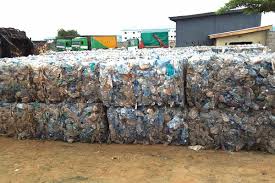As Nigeria gears up to enforce a ban on single-use plastics (SUPs) from July 1, 2025, stakeholders across the manufacturing and waste management sectors are raising red flags over the potential economic fallout—particularly for small and medium enterprises (SMEs) already navigating a tough economic climate.
The ban, to be implemented initially across all federal ministries, departments, and agencies, is part of the government’s broader environmental sustainability push. However, industry leaders warn that without proper infrastructure, viable alternatives, and supportive transition measures, the move could destabilize the very industries that keep Nigeria’s economy afloat.
An interim statement from the Pan African Manufacturers Association (PAMA) warned that an outright ban could hurt Africa’s fragile industrial base. The group’s interim president stated that while environmental concerns are valid, the current policy design and pace of enforcement ignore the realities faced by small manufacturers, many of whom supply packaging for food, pharmaceuticals, and retail products.
He argued that a better approach would be to build a circular plastics economy—one that emphasizes recycling, regional processing hubs, and policies like extended producer responsibility, rather than abrupt elimination.
The president of the Calabar Chamber of Commerce echoed similar concerns, saying there is no national infrastructure to support a full transition from plastic packaging. He proposed a 10- to 15-year timeline that includes support from science, technology, and private sector collaboration. Without that, he warned, the shift to alternatives like biodegradable paper could lead to deforestation and massive machinery costs that local manufacturers simply cannot bear.
The scrap and waste picking sector, often overlooked in national policy discussions, also weighed in. The president of the Association of Scrap and Waste Pickers of Lagos called for at least three years’ notice before full enforcement, warning that the current strategy feels rushed and disconnected from those on the ground.
Dealers and small-scale manufacturers of SUPs say they are already under pressure from inflation and rising production costs. Many describe the policy as tone-deaf, considering the lack of public awareness and economic support.
While no one disputes the need to tackle plastic pollution, the message from manufacturers and waste sector actors is clear: Nigeria’s transition must be inclusive, phased, and backed by solid policy frameworks. Anything short of that could leave thousands of small businesses in limbo and worsen unemployment in an already strained economy.










